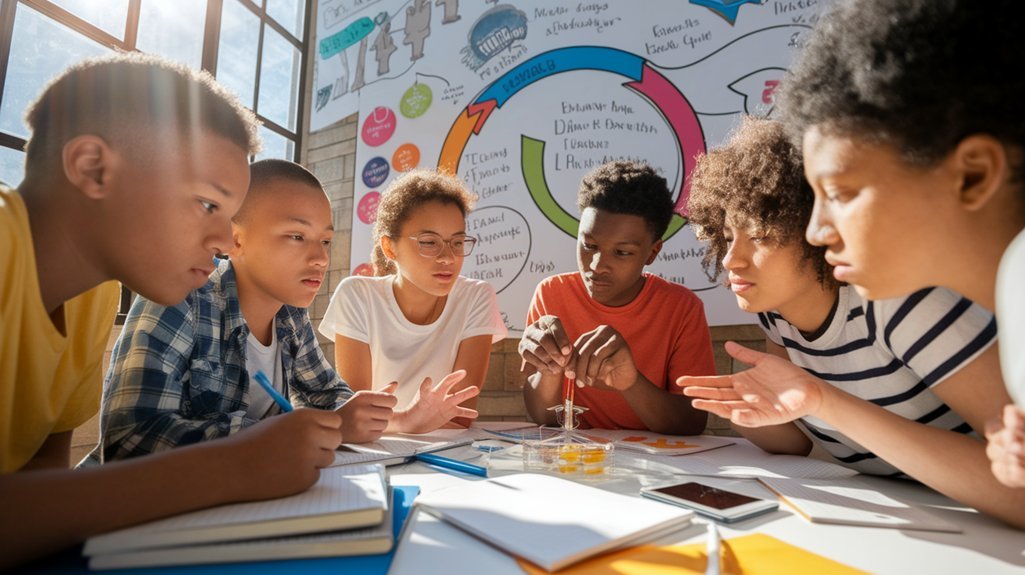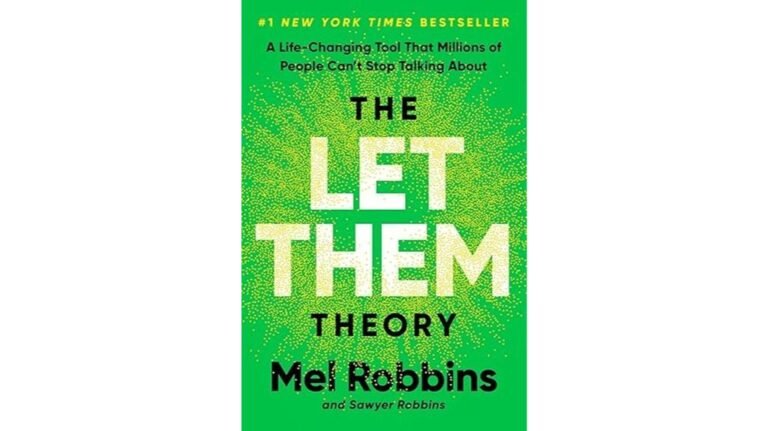Mastering Skills Through Effective Learning Strategies
To master skills effectively, you need a structured approach. Start with the learning cycle: observe, practice, and seek feedback. Imitating experts enhances your understanding and refines your technique. Use knowledge testing methods like spaced repetition to reinforce what you’ve learned. Feedback is essential; it highlights your blind spots and guides your growth. Set achievable goals and celebrate your progress to keep motivation high. There’s much more to explore about how these strategies can elevate your mastery.
Key Takeaways
- Engage in active replication of expert techniques to enhance understanding and proficiency in your chosen skills.
- Implement spaced repetition and completion exercises to reinforce knowledge retention and application.
- Utilize feedback from peers and self-assessment to identify blind spots and refine your skillset effectively.
- Set clear, achievable goals and break tasks into smaller steps to maintain motivation and reduce anxiety.
- Regularly celebrate milestones and engage with peers for accountability to sustain progress and commitment.
Understanding the Learning Cycle

The learning cycle is a dynamic process that can greatly enhance your skill acquisition. It consists of three critical phases: See it, Do it, and Get Feedback.
By observing others, you’ll grasp techniques and nuances that might elude you otherwise. Practicing these techniques reinforces your learning, solidifying your proficiency. However, motivation can wane; maintaining it’s essential for progress. Incorporating research-based strategies, like setting achievable goals and celebrating small victories, can anchor your commitment.
Ultimately, this cycle promotes continuous improvement, allowing you to refine your skills systematically and march confidently toward mastery. Embrace this process—your growth depends on it.
The Importance of Copying and Extracting Skills
Copying and extracting skills from experts isn’t just about imitation; it’s a strategic approach that deeply enhances your understanding and proficiency.
By actively replicating their techniques, you identify subtle nuances that can greatly elevate your own performance. For instance, hand-copying well-crafted writing sharpens your style, while mimicking effective public speaking refines your delivery.
In programming, engaging in active copying fosters deeper comprehension over mere pasting. This method allows you to internalize expert thought processes, paving the way for improved problem-solving skills.
Ultimately, the deliberate act of extraction propels your journey toward mastery, embedding nuanced techniques within your skillset.
Effective Knowledge Testing Techniques

How can you guarantee that your knowledge retention is both effective and sustainable? Effective testing techniques are essential. Implement completion exercises and spaced repetition to deepen your understanding and assess your progress. Below is a comparison of techniques:
| Technique | Purpose |
|---|---|
| Completion Exercises | Integrate new knowledge |
| Spaced Repetition | Enhance recall through timing |
| Cognitive Challenges | Build self-efficacy |
Utilizing Feedback for Improvement
While human instinct often leans towards self-assessment, leveraging feedback from experienced individuals can greatly accelerate your improvement. Actively seek constructive criticism to identify blind spots in your skills.
Focus on actionable insights rather than general encouragement—such feedback offers the most significant paths for growth. Utilize a learning journal to document your progress and thoughts, then share it for external evaluation.
Record your practice sessions for objective analysis. This systematic approach will enable you to refine techniques, enhance self-awareness, and cultivate a deeper understanding of your craft.
Strategies to Maintain Motivation and Achievement

To sustain motivation and achieve mastery, it’s essential to establish clear, achievable goals that align with your interests and strengths. Implement these strategies:
Establishing clear, achievable goals aligned with your interests is key to sustaining motivation and mastering skills.
- Break tasks into smaller steps to manage anxiety and maintain focus.
- Celebrate progress regularly, even small wins enhance self-efficacy and commitment.
- Engage with peers who share similar goals, fostering accountability and shared motivation.
- Seek continuous feedback, embracing constructive criticism helps refine skills and maintains engagement.
These strategies not only support motivation but also reinforce your commitment to mastering skills by creating a positive feedback loop that bolsters achievement.
Frequently Asked Questions
How Do I Choose the Right Expert to Learn From?
To choose the right expert, evaluate their experience, communication style, and teaching methods. Make certain they align with your learning preferences, track record of success, and ability to provide constructive feedback. Trust your intuition during this process.
Can Learning Styles Affect the Effectiveness of These Strategies?
Learning styles can influence how effectively you implement strategies. Tailoring your approach to align with your unique preferences enhances engagement, comprehension, and retention, ultimately leading to faster mastery of skills while keeping you motivated throughout the process.
How Long Should I Spend on Each Learning Phase?
Research shows that spending about 20% of your time observing, 70% practicing, and 10% gaining feedback optimizes learning. Balance these phases as you progress, adjusting based on your personal growth and motivation levels.
What if I Feel Overwhelmed by the Learning Process?
If you feel overwhelmed, break down tasks into smaller, manageable parts. Focus on specific skills, embrace practice, and seek feedback regularly. Celebrate small wins to maintain motivation and reinforce your confidence throughout the learning journey.
How Can I Adjust My Learning Strategies if I’m Not Seeing Progress?
If you’re not seeing progress, analyze your learning strategies. Adjust task difficulty, incorporate feedback, or change your copying methods. Engaging with more skilled individuals can also provide new insights and motivation for improvement.
Conclusion
By embracing these effective learning strategies, you’re not just acquiring skills; you’re cultivating a dynamic growth process. Like a musician fine-tuning their performance, your journey involves consistent practice, feedback, and reflection. The cycle of seeing, doing, and receiving input will deepen your understanding and enhance your abilities. As you celebrate small victories along the way, you’ll find that each step brings you closer to mastery—transforming the intimidating path of learning into an engaging and fulfilling pursuit.


